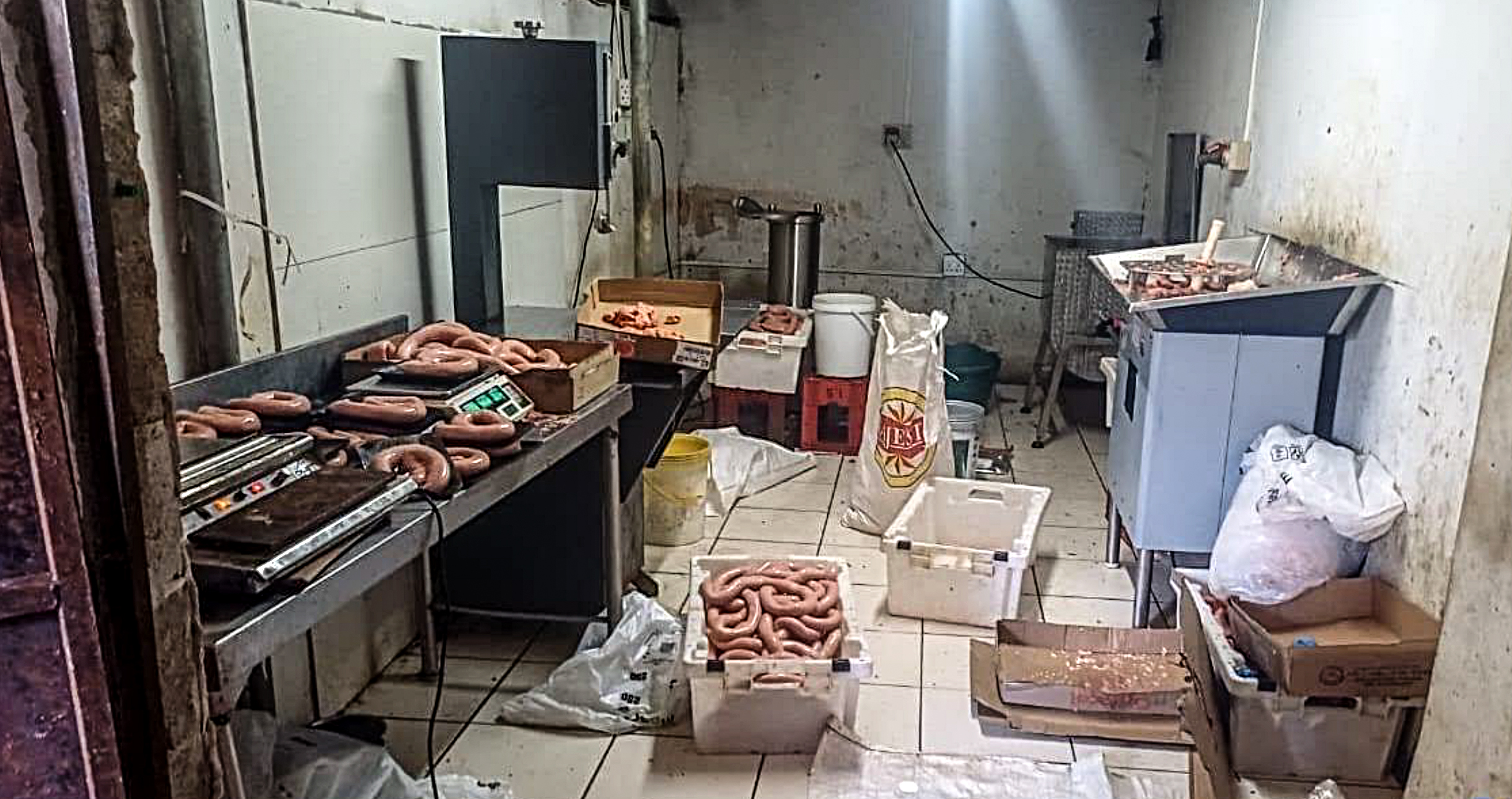KwaZulu-Natal was home to one of the more egregious food safety violations when Consumer Commission inspectors raided what appeared to be a “salvaged” biscuits factory in Verulam in November 2024.
“So, they sell these to spaza shops,” spokesperson for the National Consumer Commission Pheto Ntaba said.
The biscuit factory supplied spaza shops with the “salvaged” biscuits. Various brands appeared to have been mixed up and the packages had no labels.
Biscuits were among the food items which came under scrutiny after some children were said to have died after eating biscuits and juice that were suspected of being contaminated.
“We issued them with a certificate of investigation, and the investigation kicked off in December 2024,” Ntaba said adding that the investigation was nearing conclusion.
Neo Khang cold case
In October 2023, Soweto boys Neo Khang (6) and Leo Jele (4) died after eating suspected poisoned biscuits and juice. The community was unanimous that they had died from suspected food poisoning.
Read more: Soweto family shock after spaza shop cleared in boys’ deaths
However, it has also emerged that on the morning of the alleged poisoning, Neo had a hard fall on his head. The family has not yet heard the outcome of the police inquest into the deaths.
Sausage-making factory
In November 2024, the City of Cape Town and Crime Intelligence charged an unlicensed food manufacturing operation in the Mfuleni area. Witnesses said that the factory where the sausages were processed was “disgusting” with no hygiene protocols in place.
Sausages were processed and packaged and were likely to have been destined for bigger informal and formal traders.
Read more: Raid of dodgy Cape Town sausage facility sparks call for rigorous spaza, factory food safety checks
The City of Cape Town said in a statement after the raid that “it is worth noting that the premises in question [are] situated in a residential area. It is not listed nor identified as a business, and if not for the whistle-blower, our “Environmental Health Practitioners (EHPs) would not have had cause to conduct an inspection.”
“EHPs took meat samples from the premises for chemical analysis to test the levels and type of additives in the sausage. A fine was issued in terms of health legislation, and the case will be prepared for court in terms of the Criminal Procedure Act.”
Six men who allegedly ran the food manufacturing facility appeared in the Blue Downs Magistrates’ Court in November 2024.
Somali nationals Mohammed Abdi Kadiye (34) and Mohammed Ali Ahmed (36) face charges under the Foodstuffs, Cosmetics and Disinfectants Act 54 of 1972 for operating an unlicensed butchery and illegally producing meat products.
Kwanda Mazazana mystery
Another startling discovery was made in Protea South, Soweto. Kwanda Mazazana (14) died after eating snacks he purchased from a spaza shop in the area. As in the Neo Khang incident, the family and community believe that Kwanda died from suspected toxic biscuits.
However, the story took a twist when Daniel Faraw, the owner of the spaza shop at the centre of the death, told Daily Maverick that the boy helped him with many chores such as loading and unloading stock, but most importantly that on the day the boy died, he had given the same snacks to Mazazana and a friend, but the friend was fine.
“How could the friend have survived if it was the snacks because I gave two of them identical snacks,” Faraw said.
In the absence of a proper investigation or any meaningful updates on the inquest that had been opened, the Mazazana family might never know the truth behind their son’s death.
The Gauteng Department of Economic Affairs says food safety inspections continue.
“The Gauteng Office of Consumer Affairs and other relevant authorities continue to carry out food safety checks throughout the province. Environmental Health Practitioners have a duty to ensure that the spaza shops comply with good hygiene standards, implement food safety practices, and conduct regular inspections,” spokesperson Sabelo Ndlangisa said.
“Furthermore, provincial compliance blitzes supplement the work municipalities are doing. The reporting is done by the municipalities through EHPs as they are mandated to monitor spaza shops.”
“A recent example is the compliance inspection conducted in Plaatjie Road, Soweto, where 10 spaza shops were inspected last week,” Ndlangisa said.
“Our focus has shifted from the spaza shops … to wholesalers,” Ntaba said. DM





